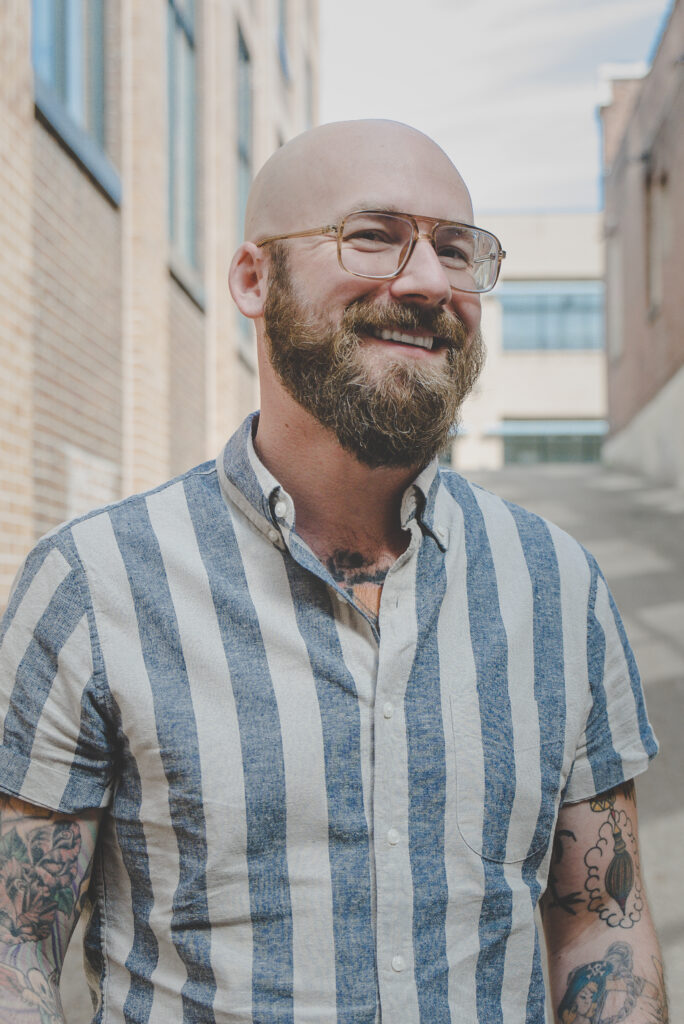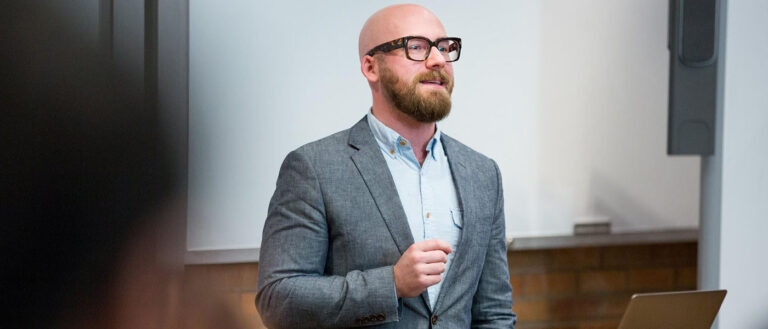
Aaron Perzanowski grew up in a small West Virginia town along the Ohio River. At Kenyon College in Gambier, Ohio, he majored in philosophy—the “ideal background” for studying law, he said. “It taught me how to construct and deconstruct an argument, how to examine texts closely, and how to disentangle reason and emotion.”
His college classes emphasized writing—a skill that would later prove useful. Throughout his academic career, Perzanowski has been writing about what ownership means in a digital economy.
As the John Homer Kapp Professor of Law and associate director of the Spangenberg Center for Law, Technology & the Arts at Case Western Reserve University School of Law, Perzanowski studies the ways that companies keep consumers from fixing the products they buy. That includes everything from hardware design and software restrictions to intellectual property law and pricing strategies.
Perzanowski’s new book, The Right to Repair: Reclaiming the Things We Own, has arrived at a time when lawmakers are considering legislation that would require firms to share replacement parts, tools, software updates and documentation with independent repair shops and consumers.
“There is a sense that if you can’t fix something, then you don’t really own it. You’re not in control of it,” Perzanowski said. “I thought the topic was complex and required the space of a book to really sort through the issues and give people a broader idea of the repair policy debate.”
The Right to Repair examines the history of repair and demonstrates how the unwillingness of companies to cede control comes at a great cost to consumers and the environment—especially when it’s easier to throw something away than to go through the time and expense of fixing it.
“You can buy a toothbrush, a garbage can and a hair brush with software embedded in it. That gives companies more immediate and direct control over the products we buy than ever before,” said Perzanowski. “I’m frustrated that working people are forced to choose between getting a phone fixed or paying their rent. I’m also terrified by the environmental consequences of products that may be cheaper to replace than repair.”
While Perzanowski is concerned that consumers have ceded too much authority to corporations, he does see reason for some optimism. For example, Apple now sells some parts directly to consumers following decades of refusal.
“That’s a sign that this right to repair movement is having an impact on company policies,” Perzanowski said. “If you can force a company to change—that tells me about the power of the arguments being made.”
Learn more about Perzanowski in this week’s 5 questions:
1. Where’s your favorite travel destination?
Of the places I’ve traveled, Vietnam is probably the one I think about returning to most often. The combination of natural beauty, lively urban centers, and incredible food is hard to beat. That said, I find the carefully curated experience of a trip to Disneyland nearly irresistible.
2. What’s up next on your reading list?
Right now, I’m reading John Darnielle’s new novel Devil House, which I’ve really enjoyed. After that, I’m hoping to get around to Kazuo Ishiguro’s Klara and the Sun. It’s been sitting on my shelf for a year, and I’m eager to finally pick it up.
3. What’s one local spot you recommend every out-of-towner check out?
Cleveland has so many unique places I enjoy. When I’m on campus, I often sneak away from my office to spend a couple of hours at the Cleveland Museum of Art. But the Spotted Owl in Tremont will always be my favorite spot in town. It’s the one place that always feels like home.
4. If you could have one superpower, what would you choose?
This one’s a tough call. But as a fan of the 2007 Nic Cage classic movie Next, I’d have to say precognition. Knowing what’s going to happen in the future is a major practical advantage in most situations and, I’d imagine, a satisfying way to indulge your curiosity.
5. What’s your favorite thing about Case Western Reserve?
It’s an incredible privilege to work with our driven, inquisitive and collaborative students every semester. Their perspectives have been integral to my growth as a researcher and a teacher.


